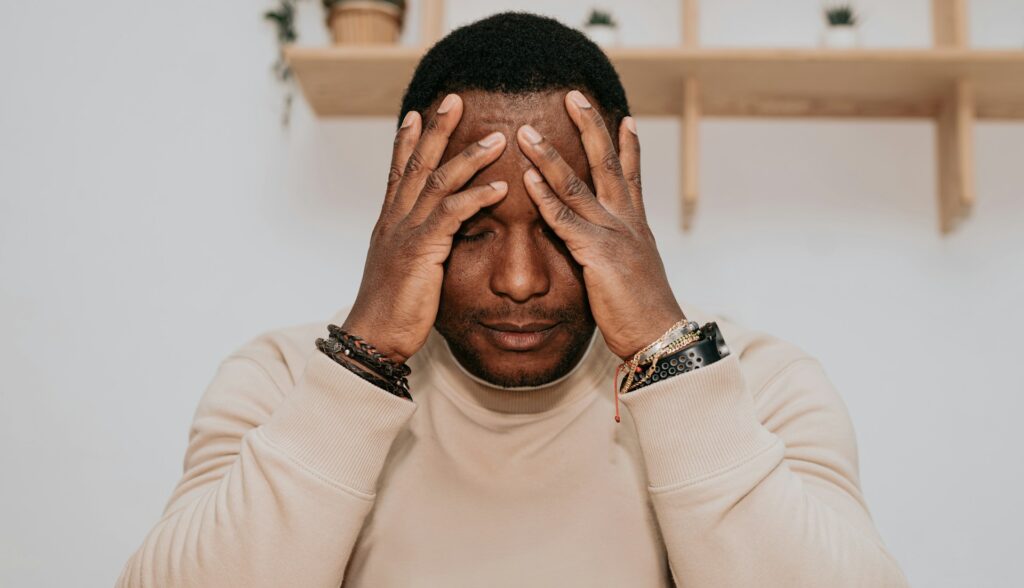When you grow up in an environment where your emotions were brushed off, mocked, or flat-out ignored, it doesn’t just disappear once you become an adult.

Sadly, it lingers more often than not. It shapes how you relate, how you communicate, and how safe you feel being fully yourself. Healing from that kind of emotional neglect doesn’t happen overnight, but it does start with small, steady changes. Here are some effective ways to begin rebuilding the safety and connection you might not have had back then.
1. Acknowledge that your needs mattered, even if no one met them.

It’s hard to heal something you’ve been told wasn’t important. However, the first step is recognising that your emotional needs weren’t excessive, dramatic, or wrong—they were human. You deserved care, even if you didn’t receive it. This change doesn’t blame for the sake of blame—it simply names what happened. That clarity is where healing starts. Because when you stop invalidating your own pain, you begin treating it with the care it’s always deserved.
2. Learn to notice your feelings without judging them.

If you were taught to suppress or ignore your emotions, tuning in might feel strange or uncomfortable at first. However, just naming what you feel—without needing to explain or fix it—is a powerful step. Whether it’s frustration, loneliness, or even joy, all feelings are information. Letting them exist without shame is how you begin building an inner world that actually listens to you.
3. Give yourself permission to take up space.

When your emotional needs were constantly sidelined, you likely learned to shrink—physically, emotionally, or both. Healing involves slowly reclaiming your right to be seen, heard, and considered. That doesn’t mean shouting to be noticed. It means letting your voice matter, your preferences count, and your presence hold value in the spaces you occupy, especially when it feels unfamiliar.
4. Practise asking for what you need in safe environments.

It’s not easy to ask for support when you were taught to rely only on yourself. The thing is, healing happens when you start expressing your needs, even in small ways, to people who respect them. Whether it’s asking for time, clarity, or comfort, the act of naming what you need helps rewrite the belief that you’re a burden. You’re not. You never were.
5. Learn to self-soothe without self-abandoning.

Many people confuse independence with emotional detachment. True healing allows for comfort without dismissal, though. Self-soothing is about being with your emotions, not pushing them aside. It might look like a walk, a journal session, or talking kindly to yourself. The point is to show up for your own feelings the way no one else did, and do it with care, not criticism.
6. Build relationships that allow for emotional safety.

You don’t need perfect people—you need safe ones. People who respond with empathy, not control. Who listen without rushing to solve. Who let you feel what you feel without making it about them. Healing from emotional neglect often involves relearning what healthy connection looks like. It starts with choosing people who hold space rather than shrink it.
7. Let go of the habit of over-explaining.

If you were made to feel like your emotions needed constant justification, you might still over-explain yourself. But healing involves trusting that your feelings are valid, even if no one else fully gets them. You don’t need a thesis for why you’re sad. You don’t need a detailed reason for needing rest. Giving yourself that grace helps build self-trust from the inside out.
8. Recognise that emotional self-care is real care.

When your upbringing centred around tasks, performance, or appearances, emotional care might have felt indulgent or pointless. But making time for your inner world is one of the most radical forms of healing. This could be through therapy, quiet reflection, or just asking yourself, “What do I need right now?”—and actually following through. Emotional care isn’t extra. It’s essential.
9. Pay attention to the way you speak to yourself.

The voices that ignored or dismissed your emotions growing up can become your own internal voice if you’re not careful. Start noticing if you’re being harsh, cold, or dismissive toward yourself. Changing this inner dialogue to something kinder doesn’t mean lying to yourself. It means showing up with the tone you always needed, not the one you inherited.
10. Stop minimising what hurt you.

You might find yourself saying things like “It wasn’t that bad” or “Other people had it worse.” That’s not healing—that’s survival language. It keeps the pain in the background, where it festers quietly. Your story deserves space. You don’t need to compare your wounds to other people. What hurt you, hurt you. That alone is enough reason to begin healing it.
11. Reconnect with your likes, dislikes, and preferences.

When emotional needs are ignored, many people lose touch with their own desires. You get so used to adapting that you forget what actually feels good or aligned for you. Healing invites you to get curious again. What do you enjoy? What do you want to say no to? What makes you feel settled, not just tolerated? These questions are worth asking, slowly and honestly.
12. Let yourself feel pride without discomfort.

If praise or acknowledgement was scarce or conditional growing up, it might feel strange to take pride in your growth. But healing means learning to celebrate the steps you’ve taken without cringing or brushing them off. You don’t need a parade, but you do deserve to feel proud of yourself for showing up differently, even if no one claps but you.
13. Explore what softness feels like.

When you’re used to being emotionally tough or self-contained, softness might feel unsafe. Of course, healing involves letting yourself be gentle—not just with other people, but with yourself. It could be as simple as slowing down your pace, letting yourself cry without apology, or letting someone comfort you without brushing it off. Softness isn’t weakness—it’s what emotional repair often requires.
14. Accept that this will take time, but you’re allowed to begin anyway.

There’s no deadline for healing. There’s no single moment where everything suddenly clicks. But there is value in choosing to start, even when the past feels heavy and the future feels unclear. You deserved better then, and you still do now. Every small step you take toward your emotional self matters—and that alone is reason enough to keep going.


